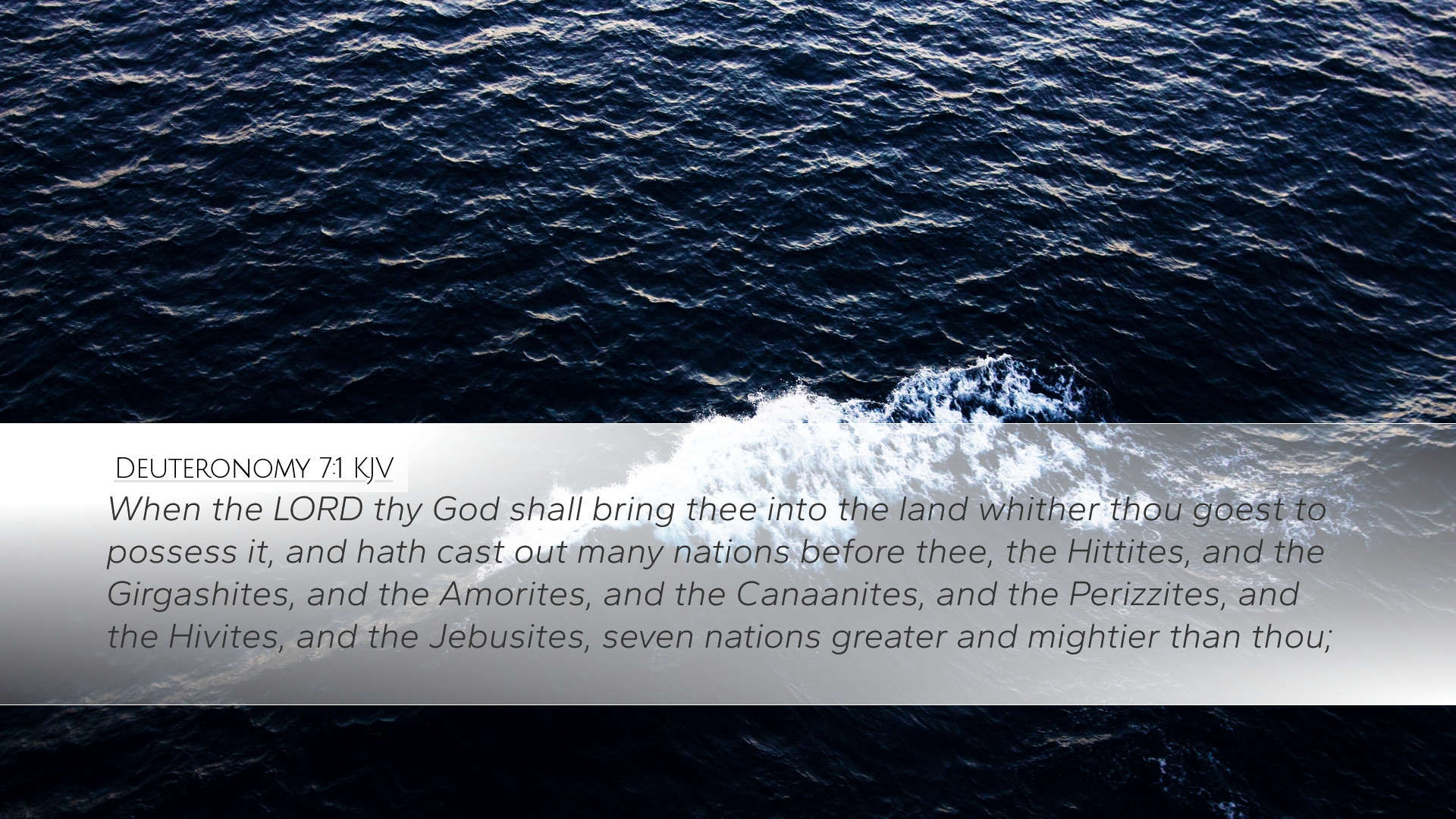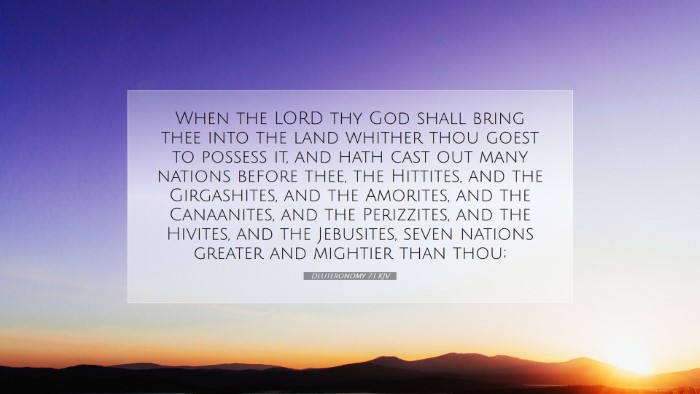Deuteronomy 7:1 - Commentary Summary
Text of Deuteronomy 7:1
“When the LORD your God brings you into the land that you are entering to possess and drives out before you many nations—the Hittites, Girgashites, Amorites, Canaanites, Perizzites, Hivites, and Jebusites, seven nations larger and stronger than you—”
Context and Themes
Deuteronomy 7:1 falls within the broader narrative of the Israelites' journey to the Promised Land. This verse lays the groundwork for understanding the divine decree regarding the conquest of Canaan. The themes here encompass divine sovereignty, the concept of holy separation, and the covenantal relationship between God and Israel.
Commentary Insights
1. Divine Intervention
Matthew Henry emphasizes the certainty of God’s promise to bring the Israelites into the land. He notes that the phrase "when the LORD your God brings you" indicates not "if" but "when," affirming God's control over the events that will unfold as Israel confronts the inhabitants of Canaan. This perspective fosters a sense of confidence in God's power and purpose.
2. The Promised Land
Adam Clarke provides significant insight into the significance of the land. He points out that the land is not merely a geographical location but a fulfillment of God’s promise to the patriarchs. The reference to ‘possessing the land’ connotes not just ownership but a divine gifting of space where they could flourish and worship God freely.
3. Conquest and Judgment
Albert Barnes offers a perspective on the nations mentioned—Hittites, Amorites, etc.—and suggests that their removal is an act of divine judgment. The text conveys that these nations are larger and stronger, highlighting their apparent might and the daunting task ahead for Israel. Yet, the divine promise ensures that strength will yield to God’s will.
4. Theological Implications
This verse serves as a theological declaration that God’s favor on Israel is not based on their numerical or military strength but solely on His covenant. Matthew Henry
5. Call to Holiness
The act of driving out the nations has implications for Israel’s identity. Clarke asserts that the covenant people must maintain their separateness from these nations to remain true to God. The requirement of holiness is paramount, highlighting the dangers of intermingling with nations that do not share their covenant with Yahweh. This necessity for purity becomes a theme throughout Israel's history.
Practical Application
For pastors and theologians, Deuteronomy 7:1 speaks to the importance of reliance on God for both spiritual and practical victories. It offers a critical framework for understanding challenges faced in ministry, emphasizing that all human victories stem from divine assistance. Furthermore, it serves as a reminder of the calling to holiness in a world that often seeks to blend with cultural norms contrary to biblical standards.
Conclusion
In summary, Deuteronomy 7:1 encapsulates a pivotal moment in the Israelite's journey, rich in theological significance and practical implications. The promise of land, paired with the assurance of divine assistance against formidable foes, underscores the nature of God’s faithfulness to His covenant people. The call to remain separate emphasizes the doctrine of holiness, which continues to resonate with God's people today.


